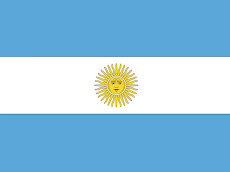We were able to visit a Masai Boma on a cultural tourism program and because that was a little spendy and exhausting, we forwent visiting Lake Victoria and Rwanda and return to Dar. Here is what we did do:
Safari
Because our other friends are going on safari later with family, Tony (our one guy) and I went alone for two days through Lake Mnara and Ngorongoro Crater. A friend recommended a guide, JP. He was supposedly a Rastafarian. Although he calls that into question by eating meat, our cooks name was Ziggy and JP spent lunches smoking “Bob Marley Cigarettes.” Still, he was a good guide. He drove and stopped as we wanted and we got to see elephants, giraffes, zebras, hippos, and wildebeests from remarkably close. Most notably, in Ngorongoro, we joined a crowd of jeeps watching lions mate from a distance. After they mated once, a herd of water buffalo chased the happy couple away from the watering hole to about 10 feet from the safari cars. After the other cars had moved on, the lions began to mate again, right in front of our car. Although I sang, "Can you feel the love tonight?," there’s no room for foreplay or cuddling in a lion’s life. The entire event lasted less than thirty seconds.
Kili Hike
After safari, we met our other friends in Moshi to hike around the base of Mt. Kilimanjaro. Hiking the whole mountain would cost over one thousand dollars and take 6 days, so we chose to get good views of the mountain instead. Usually covered by clouds, we were lucky to spot the beautiful mountain during the hike and from our hotel. Another Rasta guide took us on a fairly strenuous hike to a waterfall that was bigger and more impressive than Kaporogwe. A few of us swam in the icy water, but fortunately everyone who went could swim this time. On the way back, we tried banana beer (aweful gritty stuff) and visited our guide’s Mama and Bibi (grandmother) in the nearby village. When we wanted to take pictures of his grandmother, the tiny old woman ran back to change into a clean kitenge for the occasion.
Masai Boma
Our trip reached its climax at Isaya’s Boma. A boma is a family complex of a man’s hut with his wives’ huts and his cattle pens. We stayed in the hut of Isaya’s mother’s (his father’s first of two wives) because unlike many Tanzanians his age, Isaya is not yet married. He is 28, but a warrior chief who completed the London Marathon in four hours doing the Masai Jump (it looks like skipping) in full Masai garb, tire sandals, jewelry, a shield, and staff. He hasn’t married yet because he wants to study and return to his village to help improve irrigation and tourism programs. To do so he will give up his position as chief for several years.
We took an hour ride in a dhaladhala and another one in the back of a crowded truck to get to Isaya’s village, where we met his family, including lots of fly-covered little siblings. From childhood, the kids run wild. While, most Tanzanian’s speak Kiswahili as their first language, Masai people learn Kimasai, then English, and then Kiswahili. Most woman in the village really only speak Kimasai because they don’t ever leave the area. Masai culture is the most gender-segregated society I’ve ever witnessed. But with special Wazungu privileges, we were able to watch the men dance and sing in high-pitched Kimasai, helped them gather firewood (that didn’t exactly feel like a privilege), and they killed a goat in our honor. We were told to name the goat after someone we respected, so we named him “Barack Obama.” Like most Tanzanians, the Masai men like Obama and approved of our name choice. I could watch them suffocate the goat for about 10 seconds before cringing and leaving, but watching them dissect the goat like surgeons was fascinating. Out of respect for the Masai, I ate a small piece of the raw kidney, drank a sip of the blood, and ate a piece of the barbequed meat. The salty, bloody tasting meat confirmed my vegetarianism and upset my stomach. Because none of us could really eat the meat, Isaya’s mother made us a tasteless maize porridge we ate while the men sing, dance, and play games in the tiny, smoky hut until late. The Masai men had plenty of energy because they were constantly snorting some sort of speed so they can stay up late watching cattle. After we fell asleep, they wandered around most of the night. We slept four to a small bed of hay covered by goatskin. Needless to say, by the time we got back to Arusha, we were exhausted and ready for a
I was amazed by how the Masai hold on to their culture, while adapting to Western influences. They wear sandals made of tires and make jewelry out of imported plastic beads. They do a good job of marketing themselves to tourists, but while danced, they really weren’t performing for us; they were entertaining themselves. We were tourists, but also visitors into the daily lives of modern Masai.
Rwanda Tribunal
It was surprisingly easy to enter the Arusha International Conference Center. We just handed over our passports, passed through a metal detector, and were on our way to witnessing a UN court proceed over genocide suspects. We watched them question an Italian priest as a witness, but they stumbled over translations in English, French, and Italian so much that they mostly quibbled over his whereabouts during April, 1994 during the hour we watched. The UN says the tribunal will end in 2010, 16 years after the genocide, and after billions of dollars, less than 75 people will be tried. Despite its inefficiencies, I was glad I went to and saw this symbolic, fledging process of international justice.
Unbraided
We got home and spent last night watching “Gossip Girl” from a pirated street vendor dvd and unbraiding my hair. We thought it would be fun, but it took almost 5 hours and was quite painful for me and everyone pulling my hair out. I owe my friends all big zawadis (presents) for their dedication. So after four episodes of “Gossip Girl” and washing my hair three times to decrease puffiness, I look like myself again.
Good luck to those starting classes! I might start...someday...hopefully by the beginning of next month. For now, just hanging out in Dar.


















